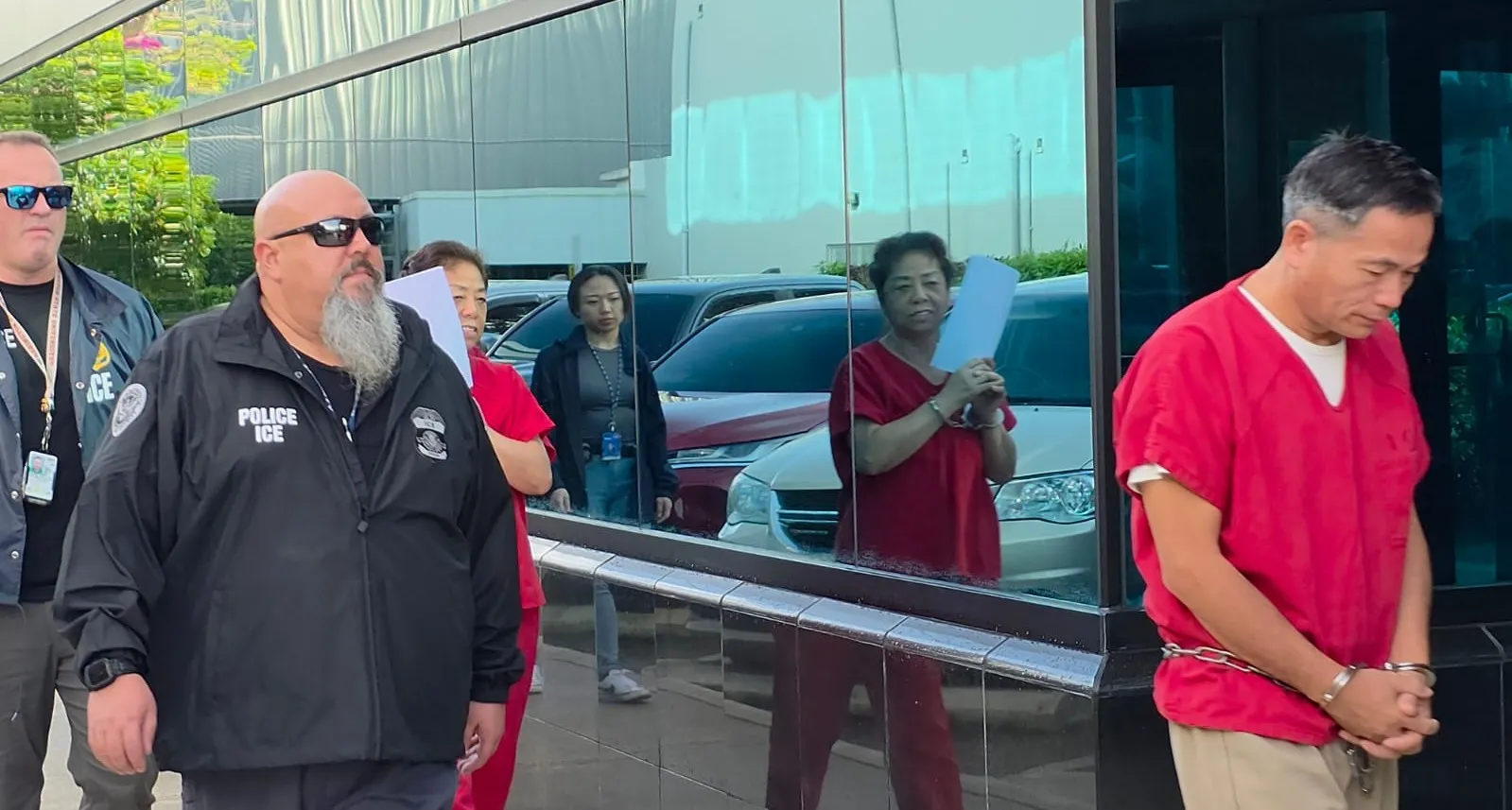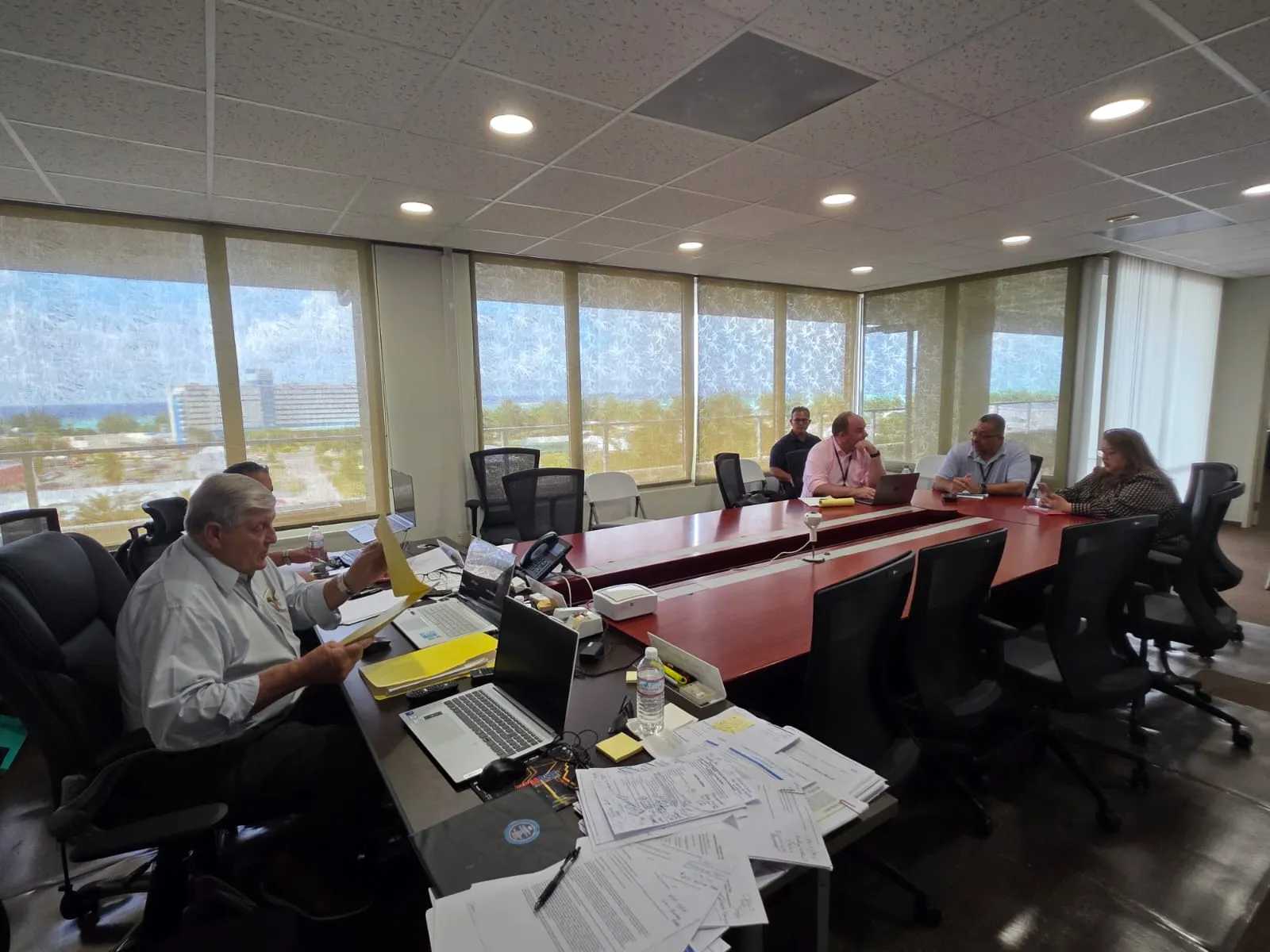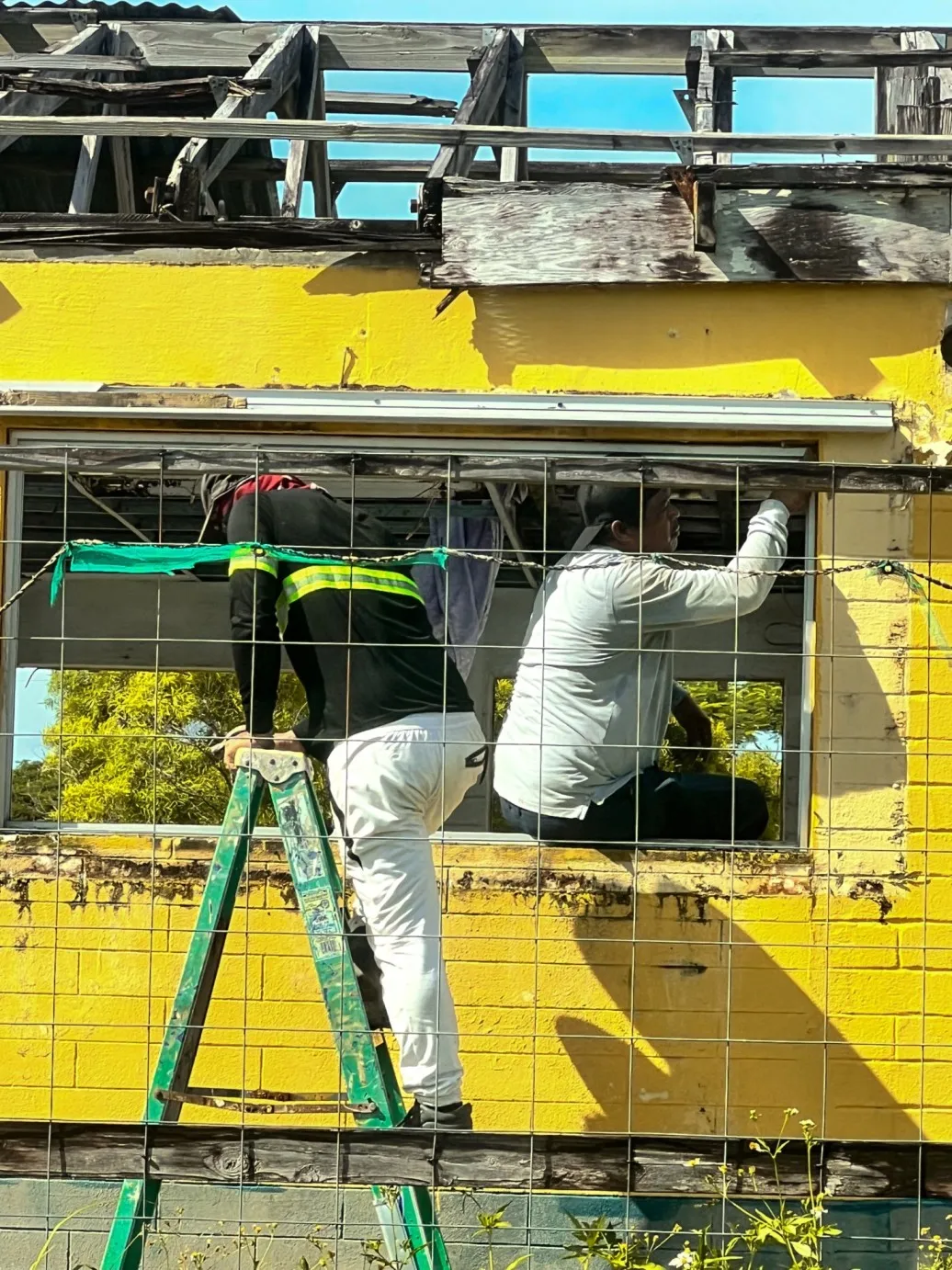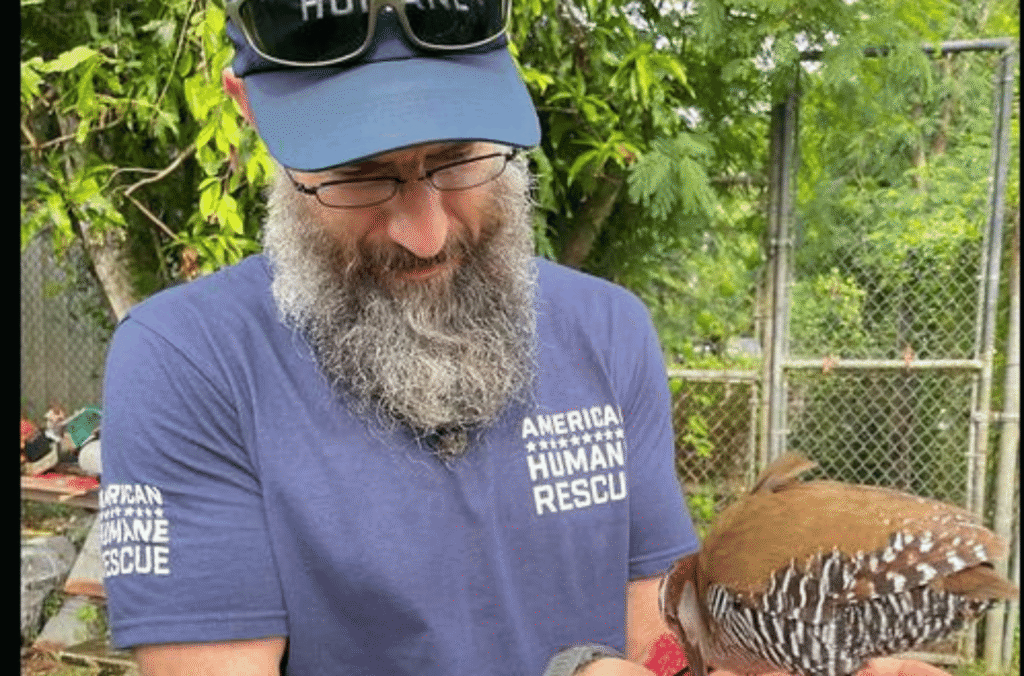GUAM (Pacific Island Times) — The critically endangered ko’ko’ bird now teeters on the brink with just 74 left, according to American Humane, which currently has a team deployed on Guam to augment Department of Agriculture’s post-Mawar recovery efforts.
American Humane said its rescue mission is facing an urgent challenge, the group said in a Facebook post, disclosing that damaged conservation fences have left the railbirds exposed to predators.
“Our team is on the ground, making vital repairs and laying the groundwork for more permanent measure,” the American Humane said, urging the local community to support the efforts to preserve the bird which is endemic to Guam.
For nearly 40 years, the Ko’Ko’ had been extinct in the wild after being decimated by the invasive brown tree snake.
In 2020, the Ko’Ko’ was successfully re-introduced in the wild. It has been recategorized from “extinct” to critically endangered.
According to the agriculture department, the American Humane team is assisting the agency’s animal control officers in their post-disaster relief efforts.
The joint effort aims to ensure the safety and well-being of the animals after Typhoon Maawar which hit Guam on May 24, leaving a trail of destructions around the island.
The rescue team comprises highly trained specialists in disaster response who bring a wealth of experience in managing post-disaster animal relief operations, having been involved in numerous disaster response missions, the department said.
“Through this collaborative effort, the team aims to equip the officers with new field techniques and specialized equipment, empowering them to enhance their skills and capabilities in handling future animal welfare-related issues,” the department said.
American Humane has provided hands-on animal welfare equipment training for animal control officers.
“They have also fashioned field equipment and donated supplies to help diversify the officers’ field techniques. In the field, they are working with ACOs to locate animals displaced by the typhoon, as well as animals with medical needs and those that pose safety concerns to the community,” the department said.

A volunteer from American Humane holds a Ko’Ko bird.











